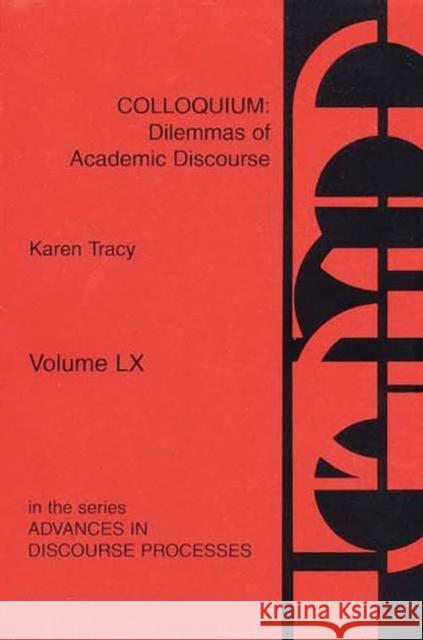Colloquium: Dilemmas of Academic Discourse » książka
Colloquium: Dilemmas of Academic Discourse
ISBN-13: 9781567502237 / Angielski / Miękka / 1997 / 204 str.
In academic colloquia the most privileged and noble mission of universities is exercised: the advancing and testing of ideas, the production of truth and knowledge, an activity that is nothing less than the the essential sound for a place of thought. But, as ideas advance and are tested, what are people doing? What is the role for emotions and relationships? What worries do faculty and graduate students bring to this occasion? What problems do participants face as they talk with each other? How are problems made visible in talk and given attention through talk? Colloquium speaks to these questions by analyzing tape recorded discussions of several academic groups, and interviews in which academics reflect about their colloquium participation. Colloquium addresses three key questions: (1) What are the communicative problems that face graduate student and faculty participants? (2) What conversational strategies are used in response to these problems? and (3) How ought academics talk with each other? This book develops how the academic colloquium is best conceived as a dilemmatic situation-a communicative occasion involving tensions and contradiction. With a dilemmatic perspective, colloquium problems experienced as diffuse and hard to articulate become recognizable, various conversational trivia become sensible, and specific moral/practical proposals emerge as defensible and desirable courses of action. The work covers views that colloquium problems form the perspective of individual participants in their roles as presenters and discussants, and graduate students and faculty members; dilemmas discourse practices of the academic colloquium are examined from a group perspective; and a philosophical and pragmatic reconstruction of practice.











